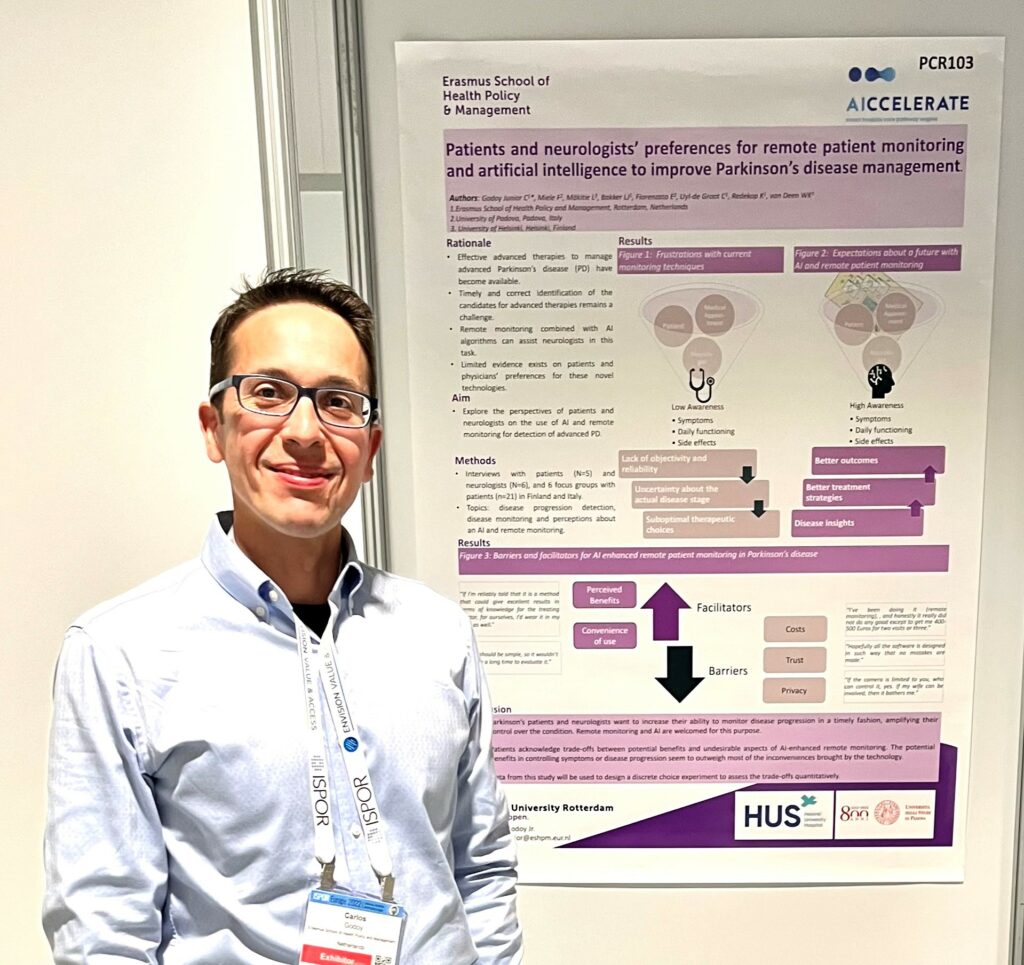News & Events
Patients’ and neurologists’ preferences for remote monitoring and AI to improve Parkinson’s disease management
21 - NovemberIn early November, our partners from Erasmus University attended the ISPOR Europe conference in Vienna. During the conference, they had the opportunity to present research findings for patients’ and neurologists’ preferences for remote patient monitoring and Artificial Intelligence to improve Parkinson’s disease management.
The research was a result of the collaboration of the AICCELERATE Parkinson’s Pilot working group, where they explored through interviews, in Finland and Italy, patients’ and neurologists’ preferences for AI-enhanced remote monitoring in the treatment of the disease.
The results demonstrated that there is constant uncertainty about the actual stage of the disease and that therapeutic choices are suboptimal due to the subjectivity of the current monitoring techniques. In general, Parkinson’s disease patients and neurologists were positive towards AI-enhanced remote monitoring to address these issues. Neurologists described preferences for tools that generate objective and meaningful clinical data. Patients emphasized a desire for devices that produce feedback to raise awareness of the disease and help their physicians to gain meaningful insights. Patients expressed concerns about data privacy, stigmatization, costs, and intrusiveness of the devices. However, potential benefits in controlling symptoms or disease progression seem to outweigh most of the inconveniences brought by the technology.

Click here to access the poster content.
As a conclusion of the abstract presented, Parkinson’s disease patients and clinicians want to increase their ability to monitor disease progression in a timely fashion, amplifying their control over the condition. Patients acknowledge trade-offs between potential benefits and undesirable aspects of AI-enhanced remote monitoring. Data from this study will be used to design a discrete choice experiment to assess the trade-offs quantitatively.
Similar Posts
 AICCELERATE at Medica Trade Fair 2023
AICCELERATE at Medica Trade Fair 2023
 AICCELERATE at Frontiers Health 2023
AICCELERATE at Frontiers Health 2023

